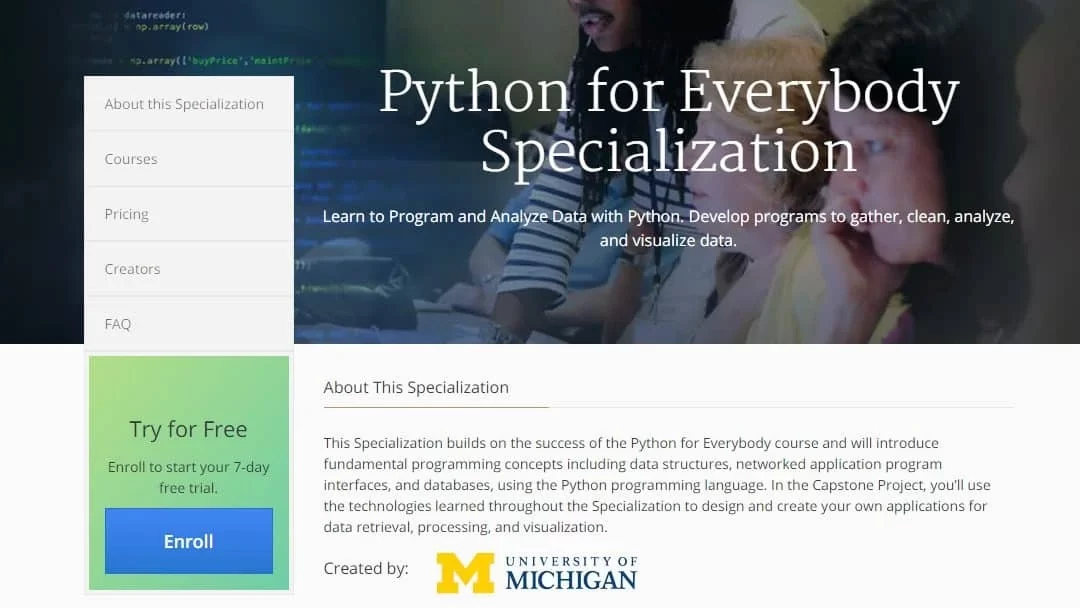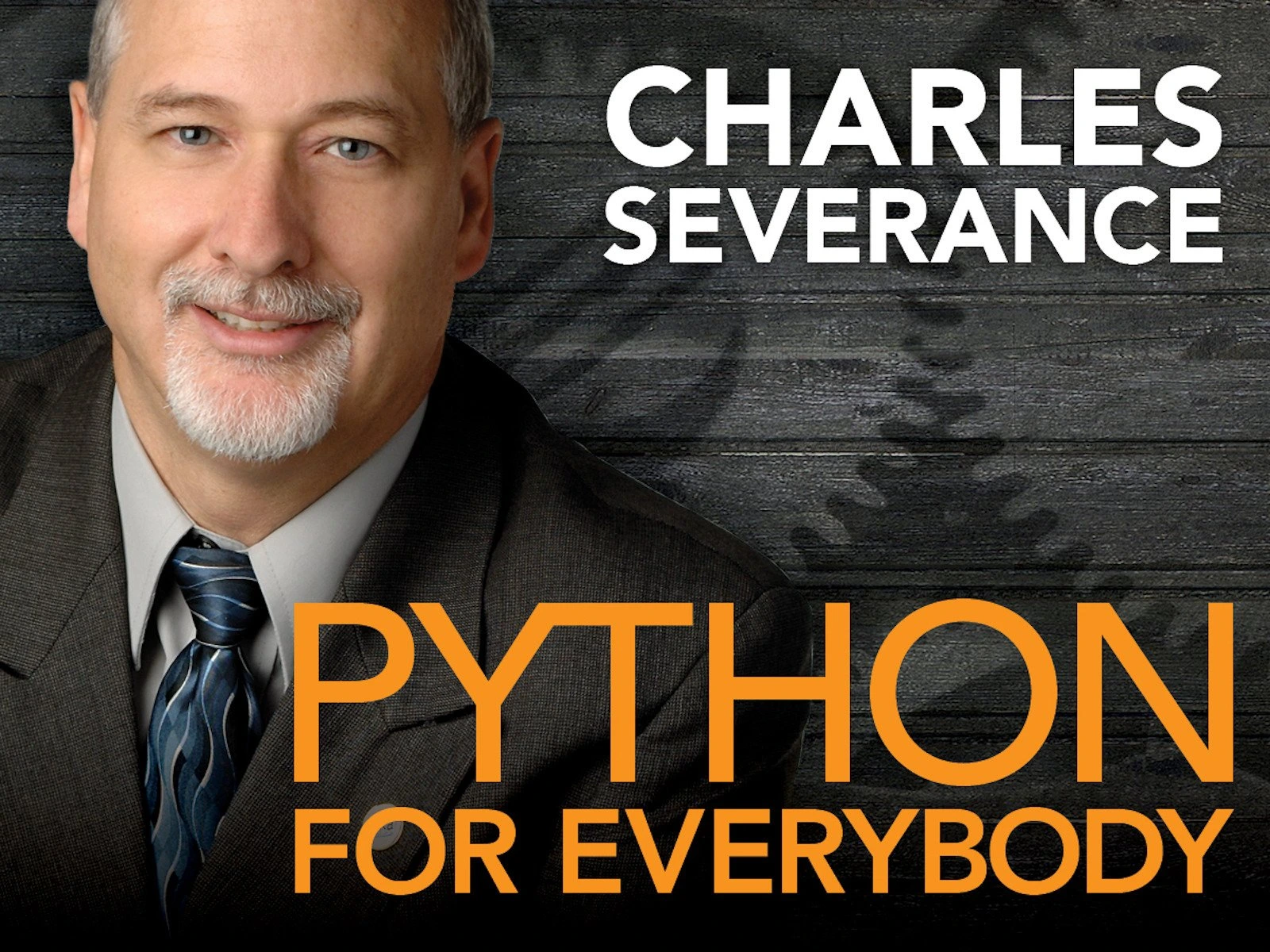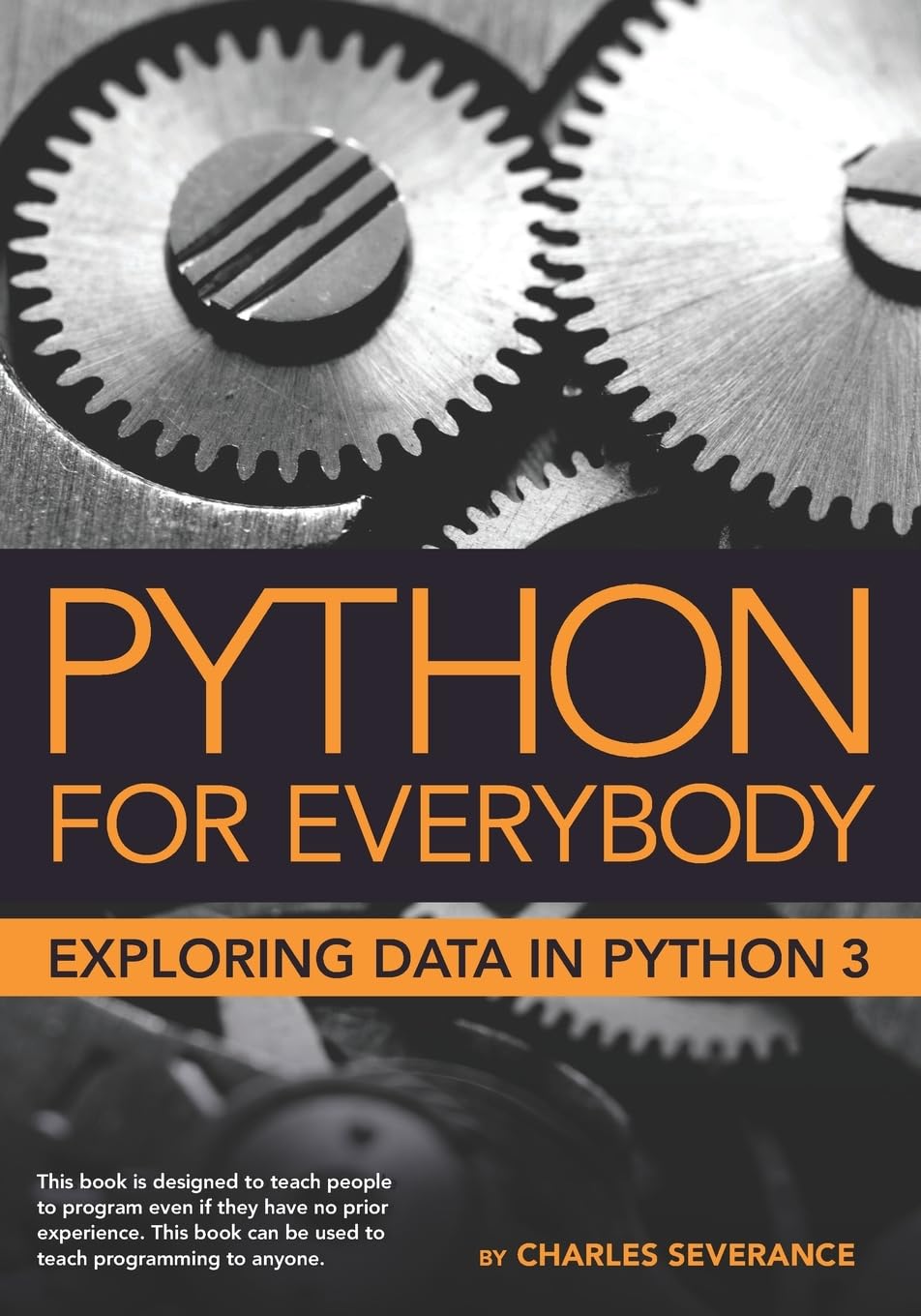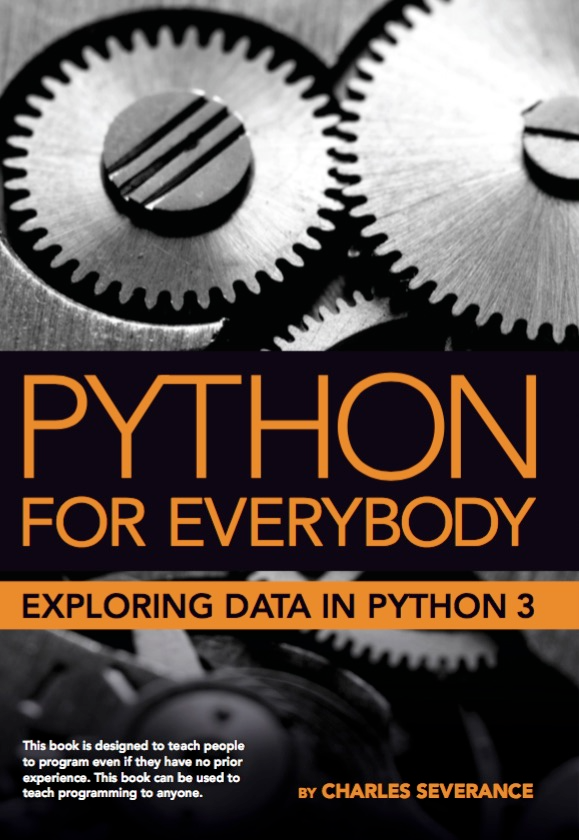Video-1: Welcome
Python for Everybody Specialization
Learn to Program and Analyze Data with Python. Develop programs to gather, clean, analyze, and visualize data.
Master Python in 5 Online Courses from University of Michigan. Enroll today!
About this Specialization
This Specialization builds on the success of the Python for Everybody course. Using the Python programming language, it will introduce fundamental programming concepts, including data structures, networked application program interfaces, and databases. In the Capstone Project, you’ll use the technologies learned throughout the Specialization to design and create your data retrieval, processing, and visualization applications.
WHAT YOU WILL LEARN
Create your applications for data retrieval and processing
Describe the basics of the Structured Query Language (SQL) and database design
Explain the basics of programming computers using Python
Understand fundamental programming concepts such as data structures
Master Python in 5 Online Courses from the University of Michigan. Enroll today!
GB
Jan 14, 2018
It’s an excellent course. Thanks for the opportunity to learn. Thanks to Coursera, the University of Michigan, and of course, Dr. Chuck, a very good and enthusiastic teacher! All the best to you!
By Sudheer n
•
Oct 7, 2019
Charles Severance is one of my favorite professors. He teaches stuff in the simplest way possible. He delivers the content in a very friendly manner. So friendly that if I meet him by chance, my first sentence might be, “Hey Chuck, Wasup?”
Coming to the course content, I didn’t understand why they included object-oriented programming in this course. Provides good exposure to SQL. There is a week of geocoding, and though he doesn’t walk you through every line of geocoding exercise, throwing it out there gives you exposure and the opportunity to learn more on your own.
By Vaughn P
•
Apr 29, 2016
Dr. Charles Severance is by far the best Computer Science professor out there!!! I’ve done a significant amount of online Computer Science courses -as well as classroom courses back in college – and not one professor has been as fun and easy to understand as Chuck. He puts presents every topic in such a way that you’re never scared off thinking “i’ll never understand this stuff.” He make computers and everything technical make sense. I’ve basically binge-watched almost every lecture/course he’s headed up.
I never knew how vital it was to understand Database development. I also thought it would be outside of my realm of knowledge but now all i want to do is build databases to analyse. He makes it so easy to comprehend. I always thought i was Python was for wanna-be programmers but now i’m proud to say Python is my language of choice. SQL scared the hell out of me before i took this course. Now it’s my first stop when i’m planning to develop a new model.
He makes learning fun and seems like he’s be a really fun guy to get to hang with. Thanks Dr. Chuck for your love of teaching, you’re the best!
Course 1 : Programming for Everybody (Getting Started with Python
This course aims to teach everyone the basics of programming computers using Python. We cover the basics of how one constructs a program from a series of simple instructions in Python. The course has no pre-requisites and avoids all but the simplest mathematics. Anyone with moderate computer experience should be able to master the materials in this course. This course will cover Chapters 1-5 of the textbook “Python for Everybody”. Once a student completes this course, they will be ready to take more advanced programming courses. This course covers Python 3.
Course 2 : Python Data Structures
This course will introduce the core data structures of the Python programming language. We will move past the basics of procedural programming and explore how we can use the Python built-in data structures such as lists, dictionaries, and tuples to perform increasingly complex data analysis. This course will cover Chapters 6-10 of the textbook “Python for Everybody”. This course covers Python 3
Course 3 : Using Python to Access Web Data
This course will show how one can treat the Internet as a source of data. We will scrape, parse, and read web data as well as access data using web APIs. We will work with HTML, XML, and JSON data formats in Python. This course will cover Chapters 11-13 of the textbook “Python for Everybody”. To succeed in this course, you should be familiar with the material covered in Chapters 1-10 of the textbook and the first two courses in this specialization. These topics include variables and expressions, conditional execution (loops, branching, and try/except), functions, Python data structures (strings, lists, dictionaries, and tuples), and manipulating files. This course covers Python 3.
Course 4 : Using Databases with Python
This course will introduce students to the basics of the Structured Query Language (SQL) as well as basic database design for storing data as part of a multi-step data gathering, analysis, and processing effort. The course will use SQLite3 as its database. We will also build web crawlers and multi-step data gathering and visualization processes. We will use the D3.js library to do basic data visualization. This course will cover Chapters 14-15 of the book “Python for Everybody”. To succeed in this course, you should be familiar with the material covered in Chapters 1-13 of the textbook and the first three courses in this specialization. This course covers Python 3.
Capstone: Retrieving, Processing, and Visualizing Data with Python
In the capstone, students will build a series of applications to retrieve, process and visualize data using Python. The projects will involve all the elements of the specialization. In the first part of the capstone, students will do some visualizations to become familiar with the technologies in use and then will pursue their own project to visualize some other data that they have or can find. Chapters 15 and 16 from the book “Python for Everybody” will serve as the backbone for the capstone. This course covers Python 3.
Coursera Plus provides access to most of our catalog, including popular Professional Certificates from Google and Meta. The following beginner-level Certificates are popular with learners, prepare learners for an in-demand role, and are worth highlighting as some of the great course options available to learners who subscribe to Coursera Plus:
Google Data Analytics Professional Certificate
Google UX Design Professional Certificate
Google IT Support Professional Certificate
Google Project Management: Professional Certificate
Google Digital Marketing & E-commerce Professional Certificate
Meta Front-End Developer Professional Certificate
Meta Back-End Developer Professional Certificate
Meta Database Engineer Professional Certificate
Meta Android Developer Professional Certificate
Meta iOS Developer Professional Certificate
Meta Social Media Marketing Professional Certificate
Meta Marketing Analytics Professional Certificate






